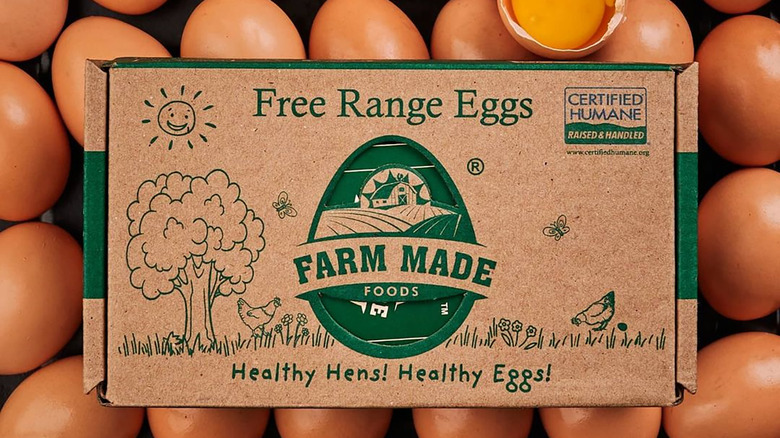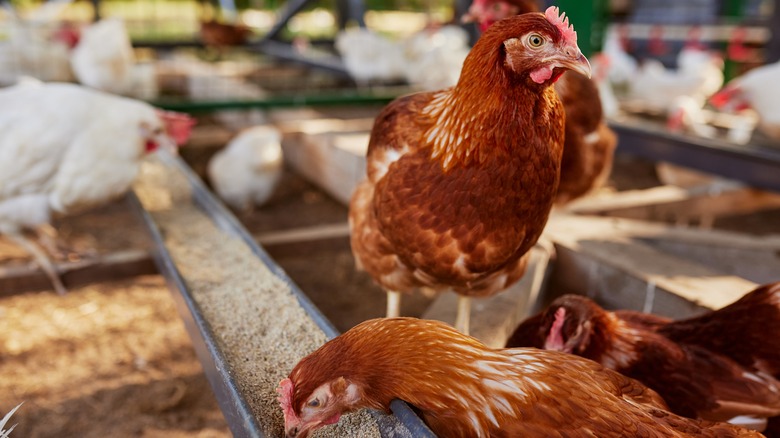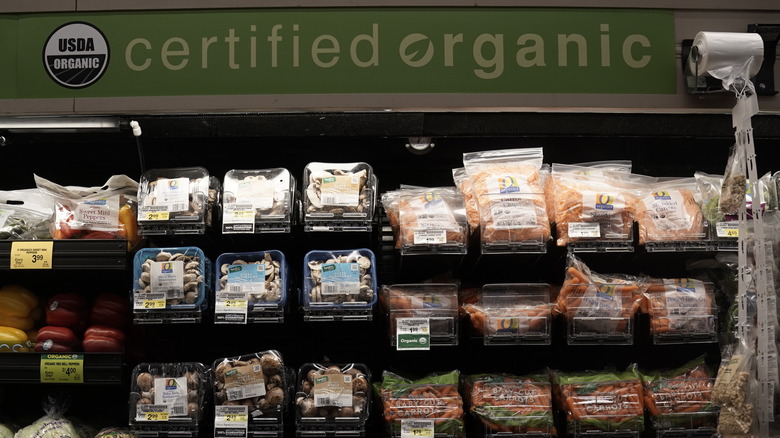What Does The Certified Humane Label Mean For Eggs?
If you've ever noticed a Certified Humane stamp on an egg carton, you've probably wondered what it means. The name sounds straightforward enough. But for those familiar with grocery store chicken and egg labels, and how some of them might not always be so truthful when taken at face value (like those infamous "organic food" myths), there's always that lingering suspicion that it might not be telling the whole story.
Let's clear things up a bit: The Certified Humane label is awarded to egg producers who meet rigorous standards set by the Humane Farm Animal Care organization. So, when you grab a carton bearing this logo, you can trust that the hens laying those eggs were treated well and had space to lay eggs with minimal distress, in a world away from the cramped, cruel conditions of traditional battery cages. But as you delve deeper, you'll find that the checks and balances done by Certified Humane are far more extensive than just simply ensuring that the chickens aren't mistreated and are healthy enough to lay eggs.
How hens live on a Certified Humane-approved farm
A farm approved as Certified Humane must provide conditions that allow hens to express their natural behaviors and needs. This means no confinement for the chickens — they're free to dust bathe, perch, and roam as they please. The standards also cover dietary requirements. Farmers must ensure high-quality feed, and they can't feed the chickens antibiotics unless specifically directed to by a veterinarian for therapeutic treatment. This not only keeps the chickens healthy but also benefits consumers by providing more nutritious and healthier eggs; since antibiotic drug residues can leach into the egg yolks, according to the book "Egg Innovations and Strategies for Improvements." The guidelines even address minor details like maintaining litter quality and managing ammonia levels.
As you can see, earning the Certified Humane stamp is no easy task. Chicken farmers must essentially build their farms from the ground up and establish their practices around Humane Farm Animal Care's guidelines. This is, ultimately, a good thing for the chickens (and, by extension, the consumers too.)
Importantly, certification isn't a one-time deal. Inspectors visit each farm annually to ensure ongoing compliance. They have the authority to revoke the stamp from partner egg brands if any breaches are found. So, if you see the label on the carton, you can trust that the chickens who laid those eggs were well-treated throughout their lives.
Certified Humane versus other certifying bodies
Certified Humane isn't the only animal welfare certifying body out there. You'll also come across stamps from organizations like American Humane and Animal Welfare Approved. While they all aim to ensure the welfare of farm animals, each organization has its own approach to this problem.
For example, when you spot an American Humane Certified stamp on an egg carton, it means the farm has met at least 85% of the requirements set by American Humane. On the other hand, to earn a Certified Humane stamp, most participating farms must fulfill every single requirement without fail. This makes the standards set by Certified Humane much more rigorous. You might also wonder how Certified Humane compares to government-funded programs like USDA Organic. While the USDA Organic program also requires farms to meet all requirements for the organic label, its standards are generally less strict and comprehensive when it comes to animal welfare. For instance, they lack clear guidelines on chicken sleep periods.
In essence, Certified Humane stands out as one of the most rigorous bodies for animal welfare. Though eggs with this stamp may be slightly pricier, the premium is worthwhile — you're supporting happy chickens and getting top-notch eggs for your breakfast.


